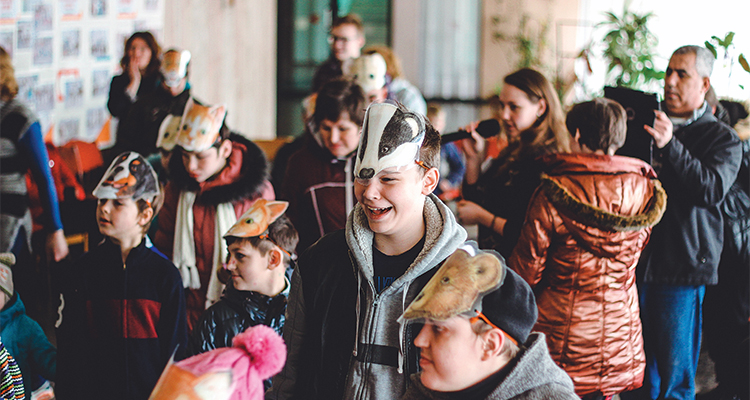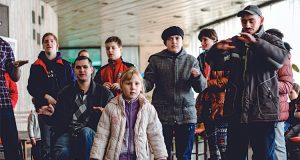 The seaside city of Odessa, Ukraine, is known as a resort town. Its health sanatoriums were designed to be places of rest and recovery, where residents could relax, recreate, and in some cases receive short-term medical services. But in the gray winter months of 2016, one sanatorium outside the city felt more like “the setup of a horror movie,” said Iryna Galisevych, child development coordinator for the Church of the Nazarene’s Commonwealth of Independent States field.
The seaside city of Odessa, Ukraine, is known as a resort town. Its health sanatoriums were designed to be places of rest and recovery, where residents could relax, recreate, and in some cases receive short-term medical services. But in the gray winter months of 2016, one sanatorium outside the city felt more like “the setup of a horror movie,” said Iryna Galisevych, child development coordinator for the Church of the Nazarene’s Commonwealth of Independent States field.
Its new residents aren’t on vacation; instead, they’re some of the 1.4 million people displaced by violence in eastern Ukraine after the Ukrainian political revolution and the subsequent Russian Federation annexation of Crimea in March 2014. Nearly all of the internally displaced persons at the camp outside Odessa are part of families with children, many of whom have disabilities and, now, no resources.
When volunteers from the Odessa Church of the Nazarene visited the camp, they were struck by the range of needs among the residents, from children with disabilities to senior adults with significant physical challenges.

“I’ve never seen so many disabled people of different ages gathered in the same place,” says Andriy Takhtay, coordinator for Nazarene Compassionate Ministries in the CIS field. “Back home [in Kyiv], many of the children had a chance to be a part of groups for children with [specific needs] and were provided specialized quality help, but now all those children were just gathered together as one large group.”
The sanatorium rooms, which had been abandoned for years, have no stoves or refrigerators. For a while, food was provided in the dining hall, but with decreases in government funding, residents now have to pay for their food and accommodations — a challenge when jobs are nearly impossible to come by and the small amount of state support each family receives barely covers children’s education and medical needs.
The children take a bus to Odessa for school, but they have no access to the sports clubs, music education, or other activities that could support their overall development. Children with disabilities ranging from cerebral palsy to autism do not receive the medical or professional services they need.
“The need is great, and people are left hopeless there,” Takhtay says.

In response, Nazarene churches in Ukraine are exploring how to help with a range of groups, including those with psychological needs, residents who are blind or visually impaired, children with general needs, children with disabilities, adults with disabilities, and senior adults.
Volunteers from churches in Ukraine are installing kitchens, providing social services, partnering with Christian medical ministries that can support the specialized needs of many of the camp’s residents, and facilitating a Kids’ Club for children that includes games, crafts, music, and Bible stories. Volunteers with experience working with children with disabilities are traveling more than 10 hours round-trip every couple of weeks to assist with the ministry.
Volunteers have also been holding weekly Bible studies for residents of the camp. When Bible study participants became interested in attending church, Pastor Nabil Babbaisiy began to hold a weekly worship service at the camp in addition to the service at the church in Odessa. Then on Easter Sunday 2016, members of the Odessa church all journeyed to the camp and, with more than 165 gathered, celebrated Christ’s resurrection — and the promise of new life — together.
Previously published in Summer 2016 edition of NCM Magazine




